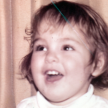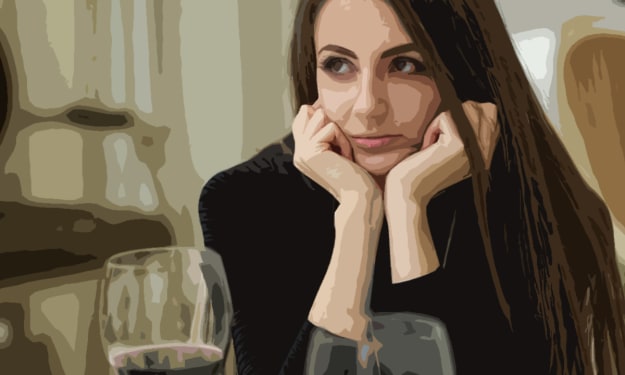To All the Kashariyot
Bravery in the Worst of Situations

It's truly amazing what you did, and yet few know who you are. You inspire me. The missions you performed saved so many, but even more than that, you brought hope.
People might not know who the "kashariyot" were, but I do. I know that you were called couriers, but you did so much more.
It's hard to imagine how it must have felt, you being a young woman of about 15 to 18 years old, running illegal missions for the Jewish resistance through war-torn German-occupied Eastern Europe during the Holocaust.
When you got your false papers, how did it feel? Were you excited as well as frightened? Your determination won through, though. You still managed to smuggle secret documents, weapons, and so much more.
How did you manage to keep your cool when you walked past a Nazi soldier when you were hiding those weapons and medical supplies as you walked towards the ghettos? How did you get inside?
You were fearless. You were heroes. You defied death at every turn and I am so proud to know that you were there.
Your name, Kashariyot, came from the term kesher, which means connection. You were a connection, a lifeline for news and information.
Maybe you were Toshia Altmann, the first to answer the call and the last to perish, you were in mortal danger every day.
Toshia, how did you manage it? You not only were kashariyot, but you were a leader and an organizer of the Warsaw Ghetto Uprising. Your death in the hands of the Gestapo in 1943 will not go unnoted. I will remember your sacrifice, and your bravery encourages me to be bold when facing injustice.
Connection is so important when facing horror and fear. Your ability to break through the walls of the ghettos was so important. You delivered more than information and supplies. You brought hope.
It couldn't have been the men, of course. It had to be a woman. A man, stripped down, was easily identified as Jewish, but you. You could pass yourself off as Polish. You had the ability to blend.
Even so, it was difficult. You had to travel with false papers, forge travel permits. It required guts...chutzpah...to bluff your way through the police inspections. Did you feel the need to vomit the first time you had to pass through the borders, have your document checks? I can only imagine the steel your nerves were made of.
You were loved by those in the ghetto. You were a mother to them. Some wanted to be near you, touch you, hug you. They knew the risks you took. They basked in your glory.
Only a handful of you survived. We should know your names, you who risked your lives. Those who died and those who lived.
Tosia Altman, you were captured and tortured. Your life ended when you were 25, yet you lived more passionately than most who reach their 90s.
Freya Beatus. It must have been so hard for you, too much to bear when you committed suicide at the age of 17.
Lonka Kozibronska, who perished in Auschwitz at the age of 26.
Frumka Plotnika, who was killed while fighting in the uprising in Bendin at the tender age of 29 and your sister Hancia, who was captured and killed even younger, age 25. Your lives were not meaningless.
Treblinka took you, Tamar Schneiderman, when at age 25 you were murdered by those you fought.
All of you were accomplished. You grew up in Polish neighborhoods. You may have attended Polish schools and learned their ways. You spoke without the Jewish accent that most Jewish people, who spoke Yiddish primarily, did. You even looked Polish. You were young, strong, energetic. You weren't tied down by children or a spouse. You were talented actors as well as brave soldiers.
Hasia Bornstein, you escaped from an inspection. Carrying a laboratory for forging documents could have left you dead in the dirt, but you appealed to the guard and looked so innocent that you were let by.
Liza Czapnik, you were saved from walking into a massacre by a peasant woman who loved your large blue eyes and little girl looks.
Bronka Klibanski...oh, the guts it must have taken to ask men to buy you train tickets and carry your suitcases when smuggling guns and ammunition!
Bela Haan...your special travel passes from the Gestapo because you looked like the picture-perfect german girl with long blonde braids must have helped immensely.
How brave you all were to do all this, and mostly without using sexual enticement as a method. To do so would have been too dangerous.
Your jobs changed throughout the war because of German policy. At first, all you were to do is make contact and sustain life in the ghettos. This provided hope, information...but was also your training ground. You rehearsed your cover stories, you found safe rooms and places to meet outside the ghetto. You were empowered.
Then you began carrying the warning and urging resistance. This happened in about 1941 when the surprise attack against the Soviets happened. That's when German mobile killing units began slaughtering entire Jewish communities in a single day. These massacres were secret, but you learned of it and spread the word. That's when you were dispatched from Vilna with the call for resistance, the news of the murders. That's when the fight truly began.
It must have been hard to convince people. The kind of genocide that was happening, they didn't want to believe it. They didn't want to hear it. How could anyone believe that the families who were told to bring bedding and clothing for "resettlement" were really being led to their slaughter?
In 1943, your third mission really took place. This is when you mounted the resistance and got the weapons.. You'd become talented at securing guns and ammunition, though it was your most difficult task. The Jewish resistance had virtually no weapons when they decided to fight the Germans. By 1942, they had only one rifle. This rifle had to be carried to each unit of would-be fighters so that each group could be trained. This was your task.
Itka Szwajger, you did well for that one. You had the weapon underneath the potatoes. When you were stopped by the German officer who ordered you to open your bag, that ploy let him wave you on unharmed.
Hasia Bornstein...how you managed to deliver a machine gun and six hundred bullets to partisans in the forest near Bialystock, I will never know. Of course, they refused to let you leave and return to the city, but that was because you were loved.
And finally, your mission was to save lives. Rescue was your resistance. When it became clear that ghettos were being liquidated, you saved as many Jews as you could. You escorted children and adults out of the ghettos. You located places for them to stay on the Aryan side and prepared new identity cards. you got them financial support and food.
You were essential to the resistance. You were our heroes. You were saviors. And while most don't know anything of you, we do remember you. We learn of you and we praise your names, your bravery. You were amazing.
About the Creator
Denise Glickler
I am a Social Media professional who loves to write. I've been involved with NaNoWriMo every year, sold a short story, written for magazines and newspapers, and produced technical documents and marketing copy.
Enjoyed the story? Support the Creator.
Subscribe for free to receive all their stories in your feed. You could also pledge your support or give them a one-off tip, letting them know you appreciate their work.






Comments
There are no comments for this story
Be the first to respond and start the conversation.